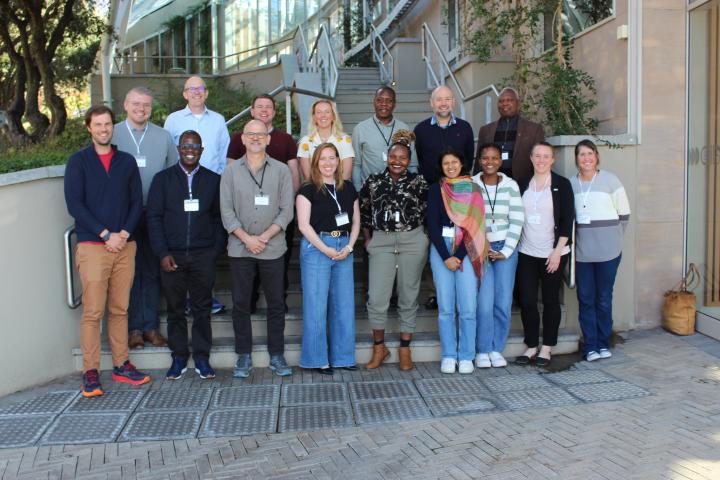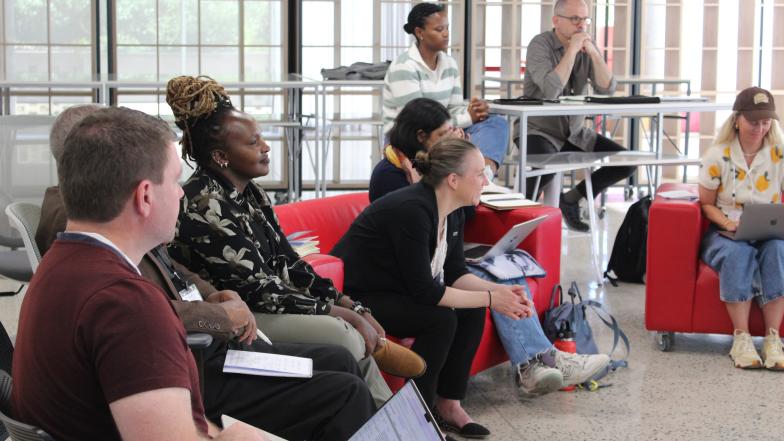Climate x Sport: Building resilience through play

In June 2025, Cape Town played host to a unique international gathering that brought together two seemingly distinct worlds: climate science and sport. Convened by the Climate Risk Lab, the inaugural Climate x Sport Working Group marked a pivotal moment in recognising sport as both vulnerable to climate change and vital in driving climate resilience.
The workshop assembled a diverse mix of researchers, athletes, sport federations, climate scientists, and media professionals to examine a pressing issue that remains largely overlooked: how climate change is already reshaping the world of sport, and how sport can respond. Despite its global reach and cultural significance, sport has been largely absent from major climate discourse, including assessments by the Intergovernmental Panel on Climate Change (IPCC).
This initiative sought to change that. Participants worked to identify key climate risks to sport, from heatwaves disrupting endurance events to air pollution reducing training capacity. They co-developed adaptation strategies, focusing on both elite and community sport. Throughout, the emphasis was clear: sport is more than competition; it is a tool for public health, social connection, and collective resilience.
“So many people participate in sports of one kind or another, and climate change is reducing opportunities for many people to get outside and be active,” says Dr Andrew Pershing, Chief Programs Officer and Director of Attribution Science at Climate Central.
Adapting sport to a changing climate
A key theme was the need to ground sport adaptation in climate science. Discussions covered how risk modelling and attribution studies can inform venue design and scheduling, and how athlete-generated data from step counts to wearable tech could help track climate impacts on physical activity. The group called for wider and more inclusive representation in this space, especially from underrepresented regions such as East Asia, South America, and parts of Africa.
There was also a strong focus on communication. With its unique ability to engage hearts and minds, sport holds narrative power that can be harnessed to build climate awareness and motivation for action. Participants highlighted the need to train athletes and sport organisations in climate communication and advocacy so that they can become credible messengers of change.
“Sport has a unique role in climate resilience because athletes and sports professionals operate at the edge of physical and environmental limits,” explains Emily Vosper, Senior Research Associate at The University of Bristol. “As climate change has the potential to push us towards conditions beyond what the human body has adapted to, sport will be at the forefront of understanding heat tolerance, hydration strategies, recovery protocols, and safe exposure thresholds. Adaptations developed in sport, such as heat management strategies, revised training schedules, or improved cooling technologies, can inform broader public health policies, including guidelines for outdoor work and school activities during extreme heat.”

A growing movement with global potential
The working group laid the groundwork for a growing network at the intersection of climate science and sport. In the coming months, the Climate Risk Lab and its partners plan to publish a perspective piece to elevate the issue in academic and policy circles. Proposed follow-up activities include research into the health impacts of climate change on athletes, infrastructure design under warming conditions, and climate literacy for sport organisations.
Stronger collaboration between sport practitioners and climate researchers will be key. The group’s recommendations included developing localised climate risk guidelines for sport, fostering athlete-led advocacy initiatives, and advocating for the integration of sport into national climate adaptation frameworks.
With events such as the Africa Cup of Nations 2027 approaching and new interest emerging from federations and funders, the timing is critical. As Nick Simpson, co-director of the Climate Risk Lab, put it: “Sport can adapt - and lead. Let’s make sure it does.”